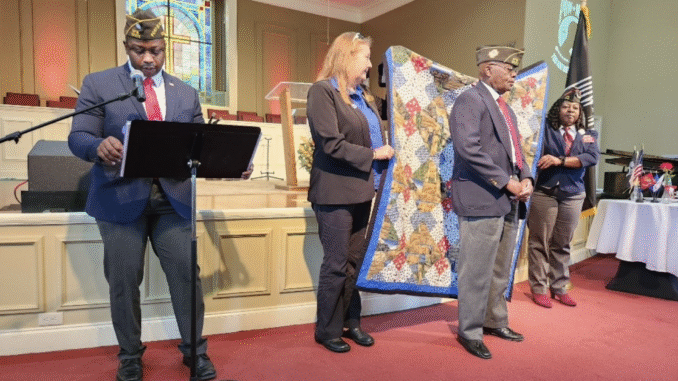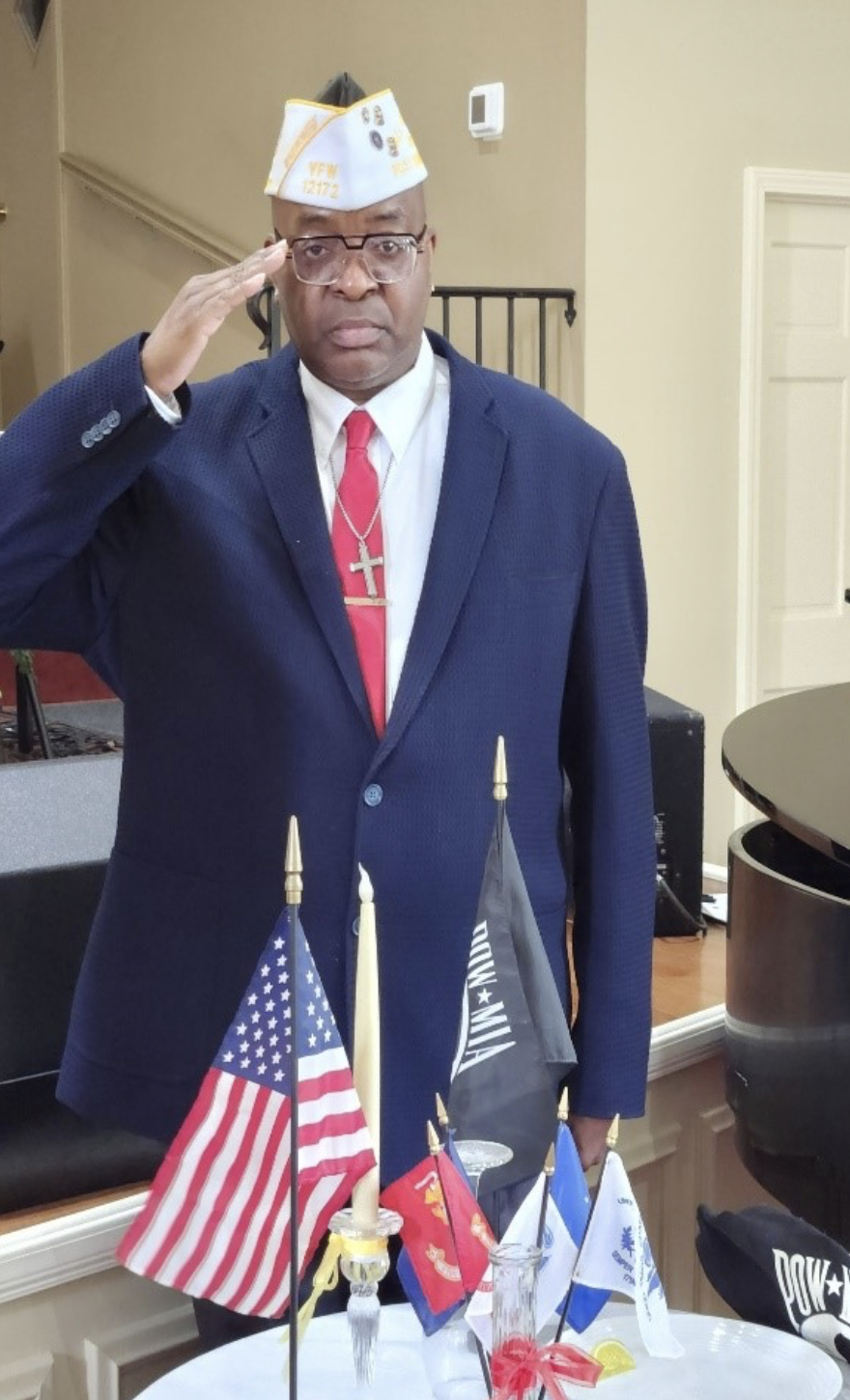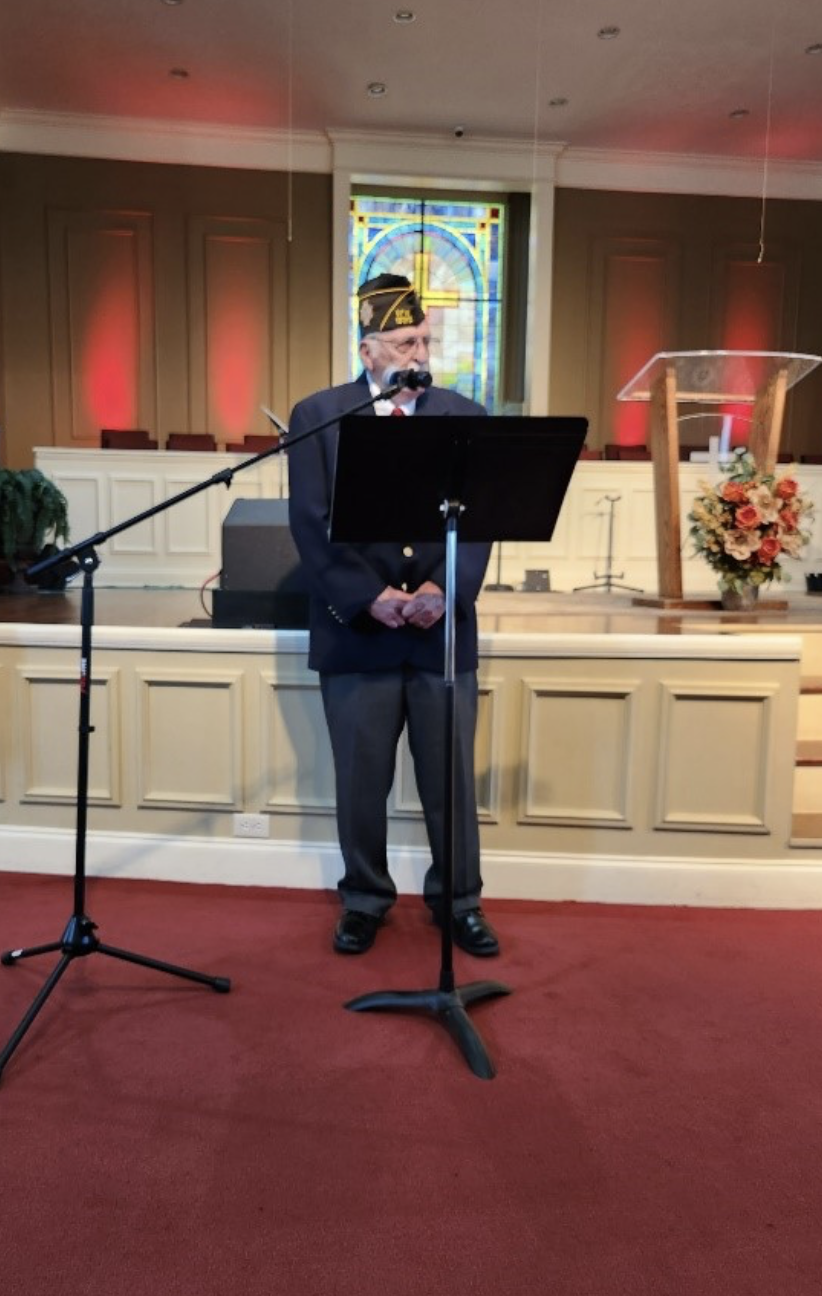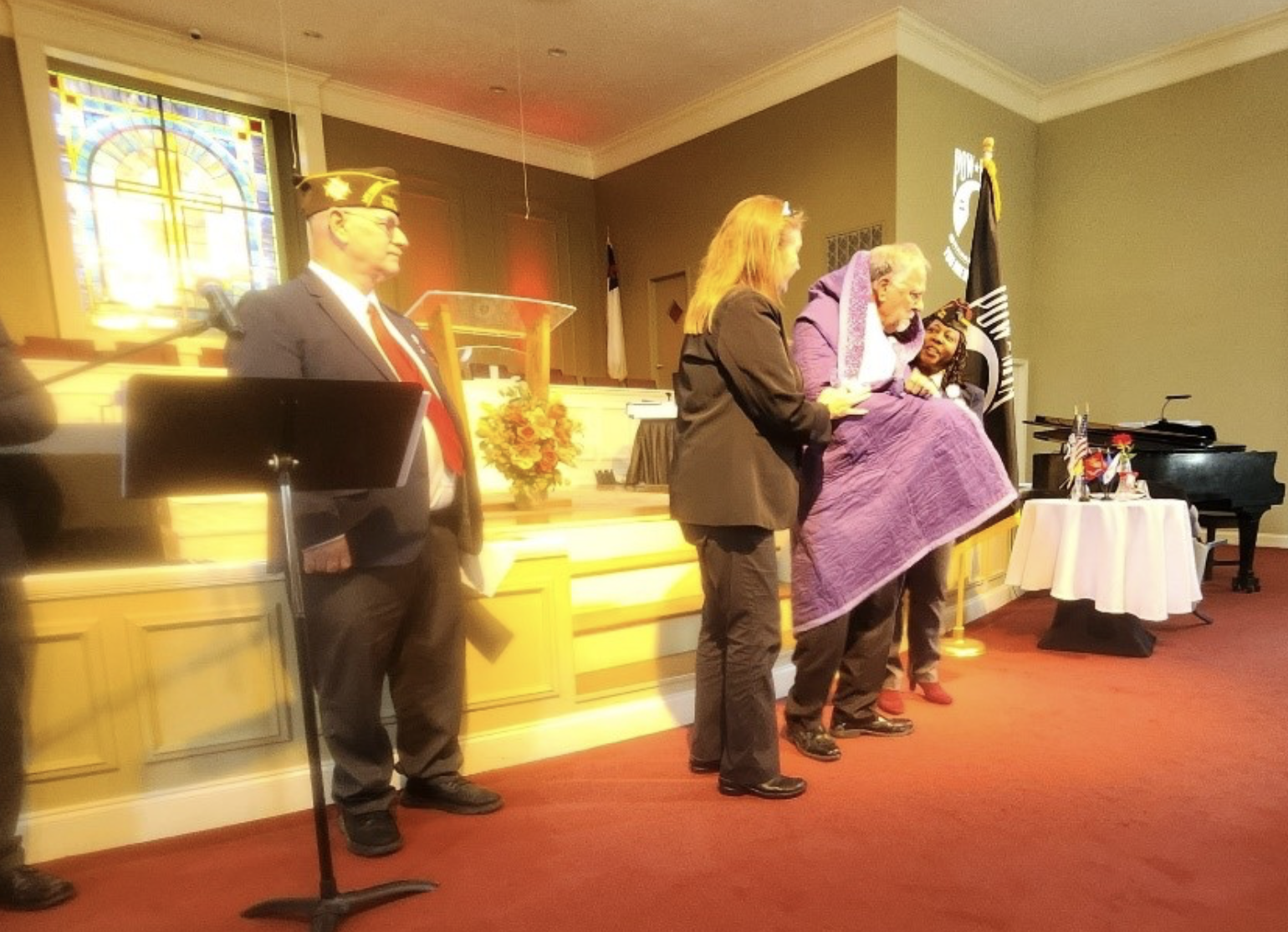
By Janice K. Neal-Vincent, Ph.D.,
Contributing Writer,
For four consecutive years, Wilson-Bain-Martin VFW Post 12172 (Brandon, MS) of Veterans of Foreign Wars has brought communities and their loved ones together to pay deference to war veterans at Liberty Baptist Church (5199 Lakeland Dr., Flowood, MS 39232). Joined by families, friends, and supporters from all walks of life, veterans maintain that it is essential to remind those who have forgotten, and to inform the unversed, about the commitment exemplified by those who serve the United States of America. Hence, promptly at 12:00 noon Saturday, September 20, 2025, the annual event convened.
The Emcee – Jay Wilson – set the tone for the gathering and kept the program moving. Participants held him and the audience in high esteem as they shared the various aspects for the hour. The overarching message shared by contributors was “War is real, and lives should not be taken for granted.”

The Pledge of Allegiance – conducted by Jay Wilson – and the National Anthem – conducted by Kenneth Bourns – blended well into Michael T. Jackson’s invocation. In his petition to God, Jackson asked for guidance and accountability to moral responsibility. The leaders’ sincerity captivated the audience while it resonated throughout the room.
While honoring 142,000 service men and women, Billy Green asserted that “our national care” is what matters. He said that it was right and respectful to pause for the occasion, a moment to reflect on American values. “We must continue to advocate for resources and funding that are needed, and we must never forget World War II and the Vietnam War,” he voiced.
The POW MIA Missing Man Table Ceremony was conducted by Kenneth Bourns. “Those who have served, and those currently serving in the uniformed services of the United States, are ever mindful that the sweetness of enduring peace has always been tainted by the bitterness of personal sacrifice,” he said. In that regard, Bourns maintained that America should never forget “those who have endured and may still be enduring the agonies of pain, deprivation and imprisonment.”
The informant referenced the table as a symbol of the missing POWs and MIAs known as comrades. Because they were unable to attend, it was essential to pay deference to them and to remember their continued absence. While the table symbolized the frailty of one prisoner who was alone – against his/her suppressors, the white tablecloth symbolized purity of the missing to respond to their country’s call to arms.
Other reminders were voiced. The missing soldiers’ blood depicted by a single rose represented sacrifices made to ensure the freedom of the United States and faith upheld by family and friends who are awaiting their return. The red ribbon exemplified an unyielding determination for a proper accounting of missing comrades. The missing’s bitter fate was in the form of a lemon slice. The countless fallen tears of families who are waiting for their loved ones showed up with sprinkled salt on the plate. The inverted glass revealed that the missing could not toast with their comrades. The empty chair acknowledged the absence of those who have not yet been found, but the candle was “the light of hope” lingering with the loved ones for their return.
What of the American flag? Bourns emphasized that, “It is a reminder that many who went missing may never return, but they have paid the sacrifice to ensure our freedom.” Thus, there is hope. We must remember their sacrifices. “May God forever watch over them and protect them and their families.”

Tara Rivers introduced the keynote speaker – Command Sergeant Major George Copeland – as a recipient of numerous awards – who has left an indelible mark upon the nation and world. Accordingly, Copeland fulfilled Rivers’ expectations throughout his address.
The speaker specified that while Americans take many things for granted, “Many Military Service people never came home. We’re still looking for them. A lot of different organizations continue to search for them.” Though many statistics were cited, the speaker noted that approximately 20,000 soldiers are still missing from World War II, and more than 1,500 are missing from the Vietnam War. Though many died in prison, we get their remains. While many performed their duties, they went missing in action. Families have been notified of their loved ones who were found.
Continuing to address the tragedies, Copeland noted that relatives have maintained persistence in reaching out to the government to find their missing relatives. In the Middle East, at least 2,500 were found deceased. At least one female doctor went missing. On another note, many servicepersons, unable to handle the harmful effects of war, have committed suicide.
Green rendered a special screen tribute to Lt. Colonel (Retired) Thomas Edward Collins III who transitioned Saturday, September 6, 2025. In his words, Collins mentioned, “The first two weeks in Vietnam were the longest weeks of my life.” Summarizing this long and complex war (the mid -1950s – 1975), Collins explained that intense guerrilla warfare, heavy bombing campaigns, and millions of deaths (over 58,000 American soldiers were killed) occurred. Further, there was severe environmental damage from chemical agents like Agent Orange, and a profound division within American society and politics. “Communication was the key to our survival. The drive home to America was the greatest day of my life,” said Collins.

Another highlight of the event was the Quilt of Valor presentation. Murray Carr and Larry Halvorson – Vietnam veterans – were this year’s recipients. Aletta Butler, VFW District 5 Auxiliary President, and Tara Rivers VFW District 5 Commander, wrapped each of the honorees in a Quilt of Valor.
VFW District Officers are: Billy Green (Post Commander); Jay Wilson (Senior Vice Commander); Michael Crews (Jr Vice Commander); Kenneth Bourns (Quartermaster/Adjutant); Michael T. Jackson (Post Chaplain); James Gooch (Post 1 Year Trustee); George Copeland (Post 2 Year Trustee); Tara Rivers (Post 3 Year Trustee); Tara Rivers (Post Judge Advocate); and George Copeland (Post Surgeon).

Be the first to comment